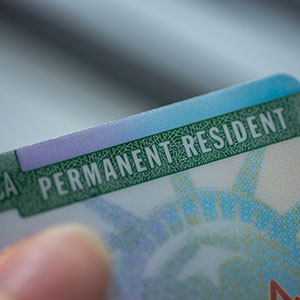
If you have filed an application for a visa and the U.S. Citizenship and Immigration Services (USCIS) needs more information, they will likely issue a request for evidence (RFE). You are required to respond within the timeframe indicated, usually between 30 and 90 days. The immigration official needs this information to process your application and have enough information to come to a favorable decision.
A Request For Evidence Doesn’t Mean You’ll Be Denied
You shouldn’t panic if you receive an RFE. It doesn’t mean that your application is going to be denied. It only means that the immigration official reviewing your application needs more information in order to make a decision. USCIS has the power to deny an application without ever issuing an RFE, so the fact that you’re given an RFE means your application is getting serious consideration. You now have the opportunity to provide more information or correct some things in order to ensure that your application is approved.
Make Sure You Respond
It is crucial that you respond with the requested information within the timeframe allowed. No response could mean a likely denial of your application. Even if you only have some of the evidence requested, it is better to submit a partial response than no response at all. It is also essential that you keep the USCIS updated on your contact information so that you will be sure to receive any RFE.
There are three possible options when you respond to an RFE:
- Fully respond and provide all of the requested information in a timely manner
- Partially respond and provide some of the requested information. This indicates that you wish USCIS to make a determination based on the evidence it has.
- Withdraw your application
USCIS regulations indicate that all evidence must be submitted at the same time, so do not send separate pieces of evidence. If you respond to the RFE and later remember that you forgot to include something, it is likely that the immigration official will not consider this additional evidence.
What To Send In Response
Typically, the RFE will indicate exactly the type of evidence that is being sought. For example, you might be asked to provide a copy of a birth certificate. Even if an RFE seems straightforward, make sure you review all of the material in your application to ensure that it is complete. In some instances, the RFE is referring to a specific law or regulation and asking you to submit documentation proving that you meet the requirements. In this case, it can be helpful to have an immigration attorney review the request with you and make sure you are submitting the correct information.
An Experienced Immigration Attorney Can Help
If you received a request for evidence and have questions about how to proceed, you may want the help of an experienced immigration attorney. At Serving Immigrants, Inc., we have the experience and the knowledge to guide you through the application process. Contact us online or call us at (305) 907-6151 to schedule a strategy session.

Attorney Magdalena Cuprys is a seasoned immigration lawyer based in Orlando and Coral Gables, Florida. With three languages under her belt and years of legal experience working with immigrants of all kinds, she brings considerable experience and insight to the field and works hard to explain immigration concepts, empower future citizens, and keep current and prospective immigrants up to date on US immigration law.
Connect with her firm, Serving Immigrants, to stay updated on the latest developments in United States immigration law and gain valuable insights needed to navigate the challenging legal landscape of immigration in Florida.
Call Us Now To Get Your Case Reviewed (305) 907-6151